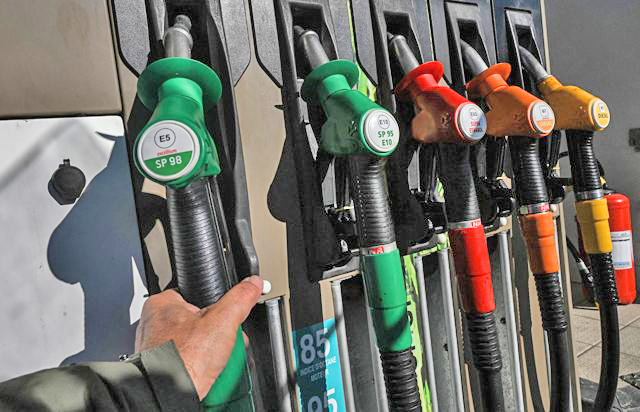You are here
IEA raises world oil demand forecast in 2023 towards all-time high
By AFP - Aug 12,2023 - Last updated at Aug 12,2023
PARIS — The International Energy Agency (IEA) said Friday it had revised upwards its forecast for global oil demand growth in 2023 as demand is "scaling record highs".
World oil demand already hit a record 103 million barrels per day in June and August and "could see yet another peak", the Paris-based IEA said in its monthly report.
"For 2023 as a whole, global oil demand is set to expand by 2.2 million barrels per day to 102.2 million barrels per day," it said.
China accounted for 70 per cent of growth, the IEA said, adding that demand in the Asian giant was "also stronger than expected, reaching fresh highs despite persistent concerns over the health of the economy".
"World oil demand is scaling record highs, boosted by strong summer air travel, increased oil use in power generation and surging Chinese petrochemical activity," the IEA said.
The forecasted expansion in global demand in 2023 would mark its "highest ever annual level", according to the agency, which in February had already forecast an annual record for the year of 101.9mbd.
The increasing demand for oil comes amid tensions on world markets after significant output cuts by several members of the OPEC+ alliance — made up of 13 members of the Organisation of the Petroleum Exporting Countries (OPEC) headed by Saudi Arabia and their 10 allies led by Russia — to prop up prices.
As a result, global oil supply plunged by 910,000 barrels per day (bpd) in July, to 100.9mbd, the IEA said in its report.
A sharp reduction in production by Saudi Arabia last month saw output from the 23-nation OPEC+ alliance fall 1.2mbd, to 50.7 mbd "a near two-year low".
Volumes by non-OPEC+ members rose to 50.2mbd, the report added.
Price increase
on horizon?
In April, several OPEC+ members decided to slash production voluntarily by more than 1mbd — a surprise move that briefly buttressed prices but failed to bring about lasting recovery.
Oil producers are grappling with falling prices and high market volatility, reflecting continued fallout from the Russian invasion of Ukraine and China's faltering economic recovery.
Saudi Arabia also announced last week that it was extending its voluntary oil production cut of 1mbd for another month to include September.
Moscow has pledged, too, to cut production by 500,000bpd in August, and a further cut of 300,000bpd for September.
"Market balances are set to tighten further into the autumn as Saudi Arabia and Russia extend supply cuts at least through September," the IEA said.
If the bloc's current targets are maintained, oil inventories could fall in the second half of the year "with a risk of driving prices still higher".
Looking ahead to 2024 as the world races to combat climate change and reduce the use of fossil fuels, the IEA said it anticipated demand growth to slow.
"With the post-pandemic rebound running out of steam, and as lacklustre economic conditions, tighter efficiency standards and new electric vehicles weigh on use, growth is forecast to slow to 1 mbd in 2024," it said.
Related Articles
PARIS — The IEA trimmed its forecast for 2023 oil demand for the first time this year as macroeconomic headwinds including higher interest r
Demand for oil is feeling the squeeze of weak growth in Europe, slowdown in China and abundant supplies, the International Energy Agency (IEA) said on Thursday.
PARIS — The International Energy (IEA) Agency said on Thursday the risk of oil supply disruptions due to the conflict between Israel and Ham
















